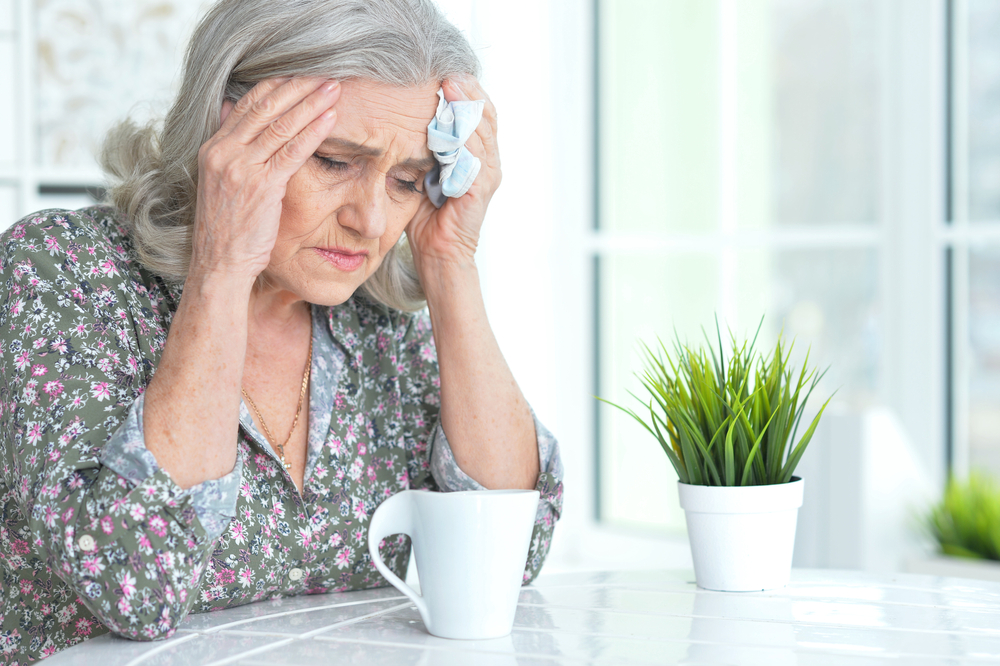As our loved ones age, it’s natural for them to experience physical and cognitive changes. While some changes are a normal part of aging, others may indicate deteriorating health. It’s important that you know the signs of deterioration in elderly adults before it’s too late. Read on to learn more about these symptoms.
Why Should You Care About Deteriorating Health?
Deteriorating health can have a significant impact on an aging adult’s quality of life. It can lead to chronic pain, decreased mobility, and loss of independence. If left untreated, deteriorating health can also increase the risk of falls, hospitalization, and mortality.
Recognizing the signs of deteriorating health early on can help to prevent these negative outcomes. It can also provide an opportunity to address underlying health issues, improve the older adult’s overall well-being, and give you time to consider at-home care for seniors.
Symptoms of Deteriorating Health in Aging Adults
- Changes in mobility: Deteriorating health can cause changes in an older adult’s mobility, such as difficulty walking, climbing stairs, or getting in and out of bed.
- Cognitive decline: Cognitive decline is common in aging adults and can manifest as memory loss, confusion, difficulty with problem-solving, and changes in mood or behavior.1
- Chronic pain: Older adults may experience chronic pain as a result of conditions such as arthritis, osteoporosis, or nerve damage.
- Changes in physical appearance: A sudden change in weight, skin color, or overall appearance can be a symptom of a health issue.
- Incontinence: Incontinence is common in aging adults and can be a sign of deteriorating health.
- Sleep disturbances: Older adults may experience sleep disturbances or insomnia due to conditions such as sleep apnea, chronic pain, or medication side effects.
- Changes in vision or hearing: Deteriorating health can cause changes in an aging adult’s vision or hearing, leading to difficulty with activities such as reading or communicating.
- Depression or anxiety: Deteriorating health can increase the risk of mental health issues, such as depression or anxiety, leading to feelings of sadness, hopelessness, or worry.
- Changes in mood or behavior: Unusual changes in mood, behavior, or personality can be a symptom of a health issue or a reaction to medication.
- Fatigue: As we age, our bodies require more time to recover from physical activity. However, seniors who experience unexplained fatigue or exhaustion should seek medical attention, as this can be a sign of an underlying health condition.
How to Care for Aging Adults With Deteriorating Health
If you are caring for aging parents or loved ones, here are several tips you should take into account:
- Consult with a healthcare professional: A doctor or nurse practitioner can provide a thorough evaluation of your loved one’s health and determine the best course of action. They may recommend additional tests or refer you to specialists who can provide further treatment.
- Encourage exercise: Regular exercise can help to improve mobility, strength, and balance in aging adults.2 Encourage your loved one to engage in physical activity that is appropriate for their abilities.
- Ensure proper nutrition: Provide your loved one with a well-balanced diet that includes plenty of fruits, vegetables, and whole grains. Consider working with a registered dietitian to develop a meal plan that meets their specific needs.
- Manage medications: Keep track of your loved one’s medications and ensure that they are taking them as prescribed. Consider using a pill dispenser or medication reminder app to help them stay on track.
- Provide social support: Social isolation can increase the risk of mental health issues in aging adults.3 Encourage your loved one to participate in social activities or connect them with local senior centers or community groups.
- Address cognitive decline: If your loved one is experiencing cognitive decline, consider working with a healthcare professional to develop a plan for managing their symptoms. This may include cognitive training exercises or medication.
- Ensure a safe home environment: Make modifications to your loved one’s home to ensure that it is safe and accessible. This may include installing grab bars in the bathroom, removing tripping hazards, or adding lighting in dimly lit areas.
- Consider in-home care: If your loved one requires additional assistance with daily activities, consider hiring an in-home caregiver. There are many benefits of home care for your loved one. Caregivers can provide several types of home health care services such as personal care, speech therapy, occupational therapy, and much more.
Provide Care For Aging Adults With A First Name Basis
Deteriorating health is a natural part of aging, but it is important to be aware of the signs and symptoms to provide the best care possible for aging loved ones. By being vigilant and seeking medical attention as soon as possible, providing proper nutrition and hydration, ensuring a safe environment, and providing emotional support, you can help your loved one maintain their health and quality of life.
It’s also important that you remember to take care of yourself and seek support when needed. If your plate is becoming too full, we are here to help. At A First Name Basis, we provide at-home care for seniors that both you and your loved ones can benefit from. Check out our services today to see if we can suit your needs!
Sources:
- Mayo Clinic. Healthy Aging. https://www.mayoclinic.org/healthy-lifestyle/healthy-aging/in-depth/aging/art-20046070
- National Institute of Aging. What Do We Know About Healthy Aging? https://www.nia.nih.gov/health/what-do-we-know-about-healthy-aging
- Suicide Prevention Resource Center. Reducing Loneliness and Social Isolation Among Older Adults. https://sprc.org/wp-content/uploads/2022/12/Reducing-Loneliness-and-Social-Isolation-Among-Older-Adults-Final.pdf

